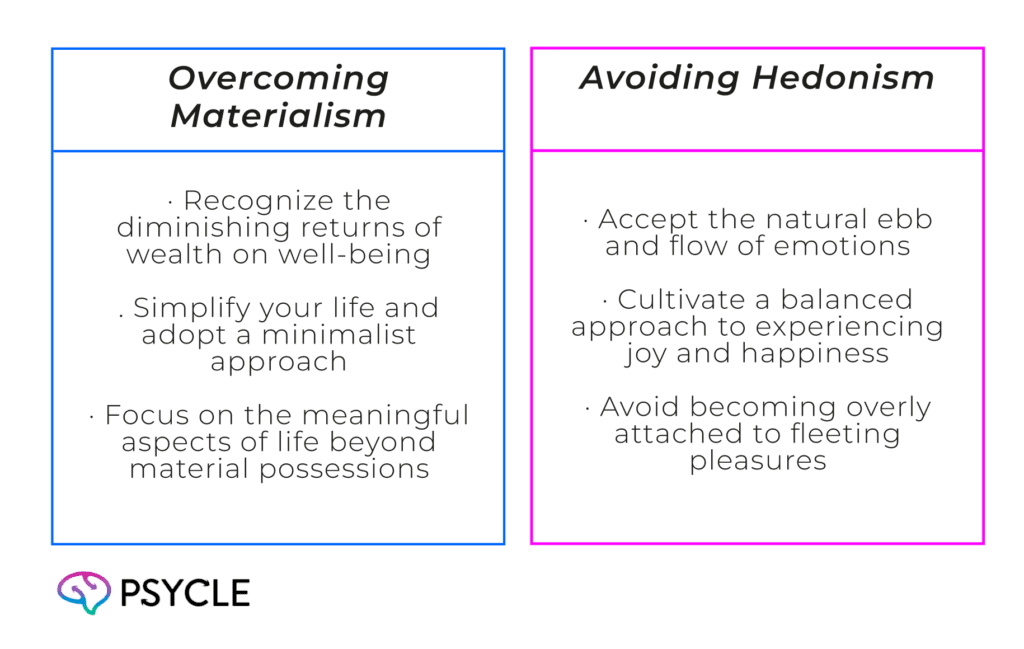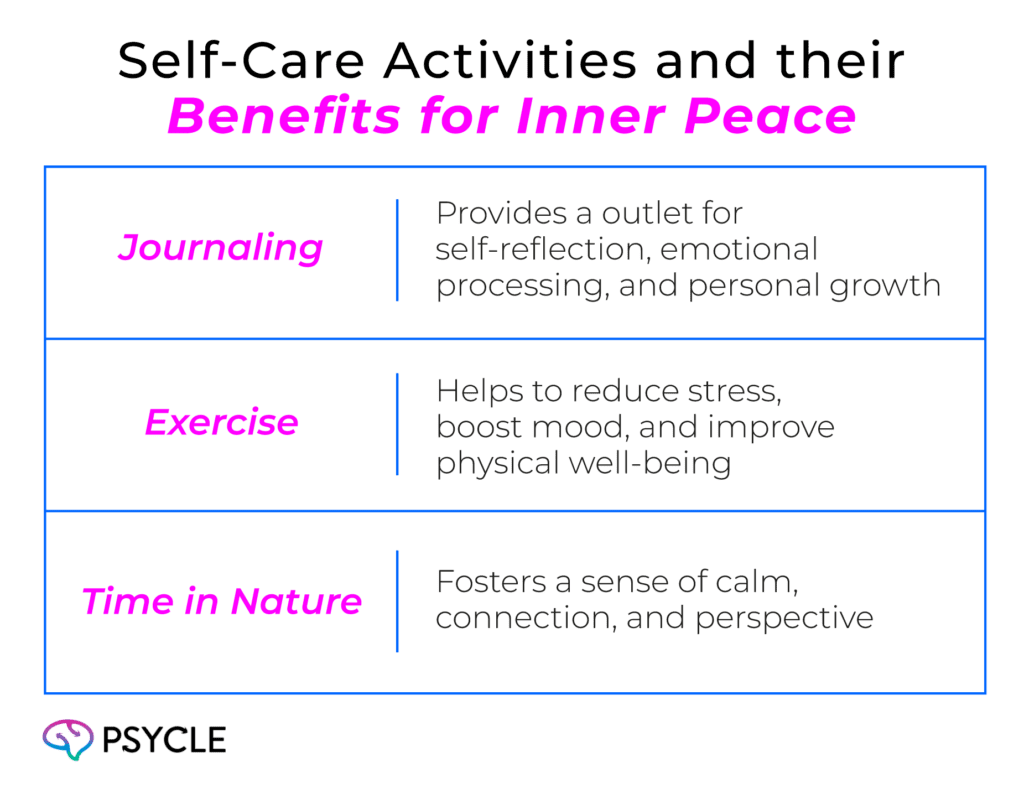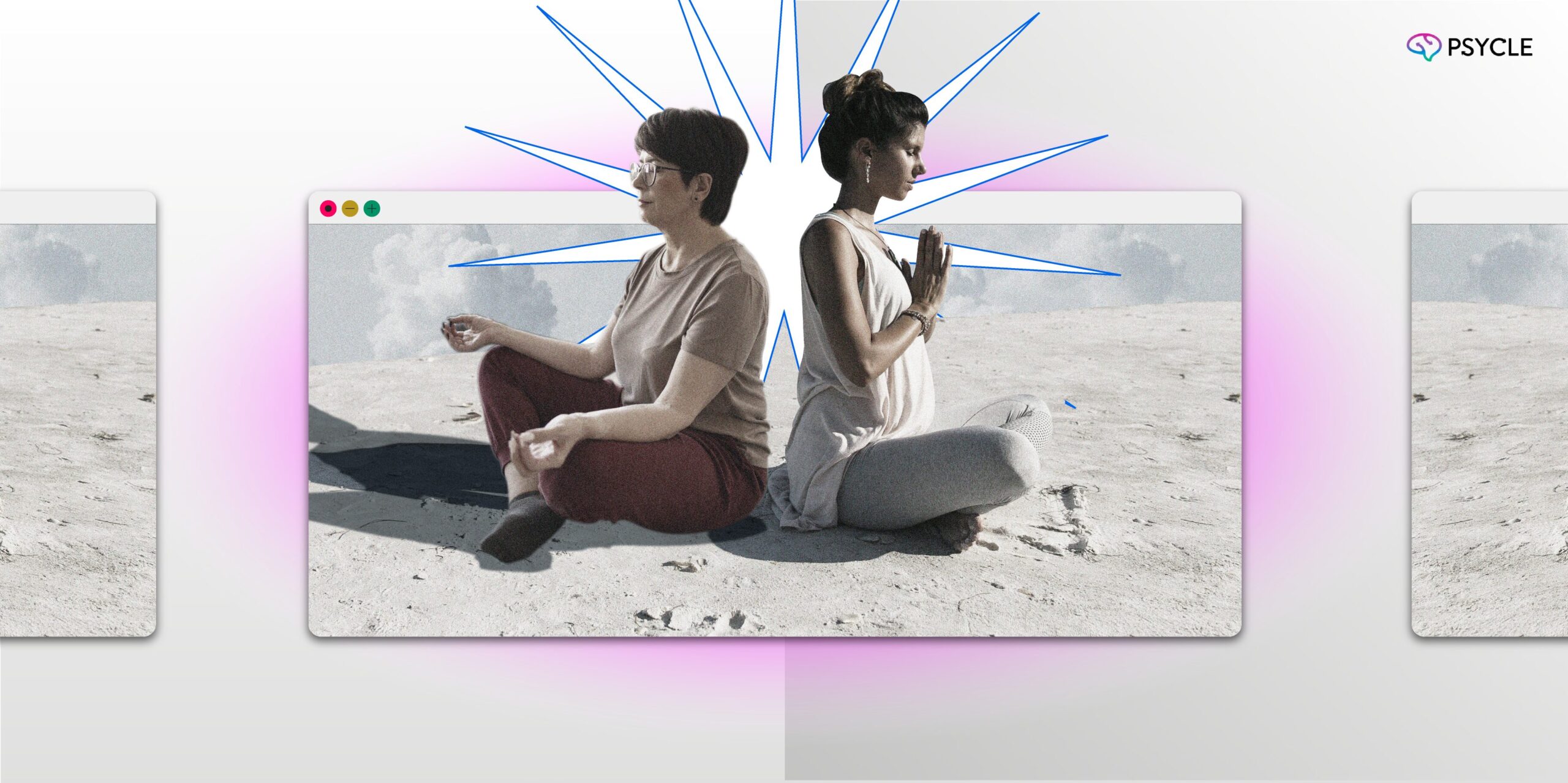As we age, finding inner peace becomes more important for our mental and emotional health. It helps us accept the changes that come with growing older. This way, we can age with grace and a new sense of purpose.
Inner peace is more than just a feeling; it’s a way of living. By being mindful, embracing life’s changes, and building strong connections, we find balance and stability. This balance is within us, waiting to be discovered.
Key Takeaways
- Developing self-awareness and accepting the natural changes of aging is key to finding inner peace.
- Letting go of material attachments and focusing on what truly matters can foster a sense of inner balance.
- Engaging in self-care activities, such as meditation and spending time in nature, can support your journey towards inner peace.
- Cultivating gratitude and nurturing meaningful relationships can contribute to a deeper sense of contentment.
- Seeking professional support, if needed, can help you navigate the emotional and psychological aspects of aging with greater ease.
What is Inner Peace?
Inner peace is more than just happiness. It’s a deep calm and contentment that lasts. It’s a feeling of balance and serenity inside you. Unlike short-lived excitement, inner peace is a steady and stable feeling.
Inner peace means your thoughts, feelings, and actions are in harmony. It’s being fully present and centered, even when life gets tough.
Characteristics of Inner Peace
- Calmness and tranquility: Inner peace brings a deep stillness, where your mind is quiet and free from distractions.
- Emotional stability: People with inner peace handle life’s ups and downs calmly, without extreme emotional reactions.
- Contentment and satisfaction: Inner peace brings a deep sense of fulfillment and appreciation for the moment, without needing constant external approval.
- Balanced perspective: Those with inner peace see things clearly and objectively, understanding the connection between all things.
Unlike happiness, which is often short-lived, inner peace is a lasting state. It brings a sense of grounding and stability. While happiness may change, inner peace offers a lasting sense of wholeness and fulfillment.
The Importance of Inner Peace
Finding inner peace is more than just feeling calm. It brings many benefits that improve your well-being and life quality. When you find inner peace, you feel more satisfied and positive, making life more meaningful.
Inner peace boosts your emotional and mental health. People with more inner peace sleep better and dream more vividly. It also helps you connect with others better, making your relationships stronger.
Inner peace also improves your life quality. It helps you handle life’s challenges with a positive attitude. This leads to greater happiness and appreciation for the moment.
The benefits of inner peace affect your relationships, happiness, and aging process. By focusing on inner peace, you can make your later years more fulfilling and rich.
How to Find Inner Peace as You Age
As we age, finding inner peace becomes more crucial. Luckily, there are techniques for cultivating inner peace to help us.
Mindfulness meditation is key for aging and inner peace. It helps us quiet our minds, focus on our breath, and live in the moment. This brings calm and clarity, helping us deal with life’s changes.
Cultivating gratitude is also powerful. By focusing on the good in our lives, we find contentment. Appreciating what we have shifts our view to the present.
Letting go of regrets is another technique for inner peace. As we age, we naturally think about the past. But holding onto regrets blocks our inner peace. By releasing past mistakes, we can enjoy the now.
Self-care activities like journaling, exercise, and nature walks help too. They reconnect us with ourselves, reduce stress, and bring balance.
Seeking help from therapists or life coaches is also wise. They offer guidance, tools, and support as we age.
By using these techniques, we can start a journey towards inner peace. With patience, self-compassion, and a willingness to try new things, we can find the serenity and contentment of this stage of life.
Acceptance: Embracing Life’s Transitions
As we age, it’s key to accept the changes that come our way. This includes losing loved ones, physical changes, and shifts in our social circles. Accepting these changes is a big act of self-care. It helps us adapt and thrive, rather than getting stressed or anxious.
Adapting to aging is tough, but it’s essential for accepting life changes and maintaining inner balance. Letting go of the need to control everything can be freeing. It helps us enjoy the present and deal with challenges more easily.
By adapting to aging with kindness, we can face life’s changes calmly. Whether it’s retiring or moving, seeing these changes as opportunities can bring inner balance. This balance helps us start new chapters with clarity and purpose.
Embracing life’s changes takes effort and a mindset of acceptance. Mindfulness, self-reflection, and support from others can help us navigate these changes. This way, we can find peace and adaptability in the face of change.
Transcending Materialism and Hedonism
As we age, it’s key to move beyond materialism and hedonism. These can block our path to inner peace and happiness. By letting go of short-lived stuff, we find true purpose and joy.
Materialism’s chase for wealth and status doesn’t bring lasting happiness. Studies show more money doesn’t make us happier once our needs are met. Instead, we should simplify our lives and not chase endless possessions.
Hedonism, or the endless search for pleasure, also holds us back. While joy is important, too much of it can lead to disappointment. Learning to balance our emotions helps us accept life’s ups and downs and find peace now.
Finding a balance between what we own and how we feel is crucial as we age. By embracing minimalism and mindfulness, we can move past materialism and hedonism. This lets us focus on life’s true values.

Cultivating Gratitude and Meaningful Connections
Focusing on life’s positives and building strong relationships helps us find inner peace. Gratitude and meaningful connections bring balance and contentment.
The Power of Gratitude
Studies show gratitude boosts our well-being. Reflecting on our blessings trains our brains to see the good. This shift brings peace, as we enjoy the present and simple joys.
Nurturing Meaningful Relationships
Good relationships are vital as we age. Spending time with loved ones gives us a sense of belonging. These connections offer comfort, laughter, and shared moments, deepening our peace.
Gratitude and meaningful connections unlock positive psychology’s power. They help us age with grace and appreciation. This approach to well-being enriches our lives.
The Role of Spirituality and Purpose
As we age, finding inner peace is easier with spirituality and purpose. Connecting to something bigger than us, through faith or other ways, brings meaning. This helps us feel balanced and calm.
Practices like meditation, prayer, or spending time in nature can lead to deep peace. They help us be more aware, thankful, and connected. By focusing on the spiritual, we find stability and peace, even when life gets tough.
Also, finding purpose in our lives is key. Meaningful work, good relationships, or helping others can bring peace. Feeling our actions serve a higher purpose makes us content and strong, no matter what life throws our way.
Letting Go of Regrets and Embracing the Present
Life’s journey often leads us to think about past mistakes or chances we missed. Yet, overcoming regrets and living in the present moment can change our lives for the better. It leads to mindfulness and inner peace.
It’s key to let go of regret to enjoy the present. Dwelling on the past takes away our joy in the now. By embracing the present, we grow more thankful, focused, and strong inside.
- Acknowledge your past experiences, but avoid dwelling on them excessively.
- Practice mindfulness techniques, such as meditation or deep breathing, to anchor yourself in the present moment.
- Reframe your perspective by focusing on the lessons and growth that have emerged from your past challenges.
Releasing regrets is a journey that needs kindness to ourselves and acceptance of life’s flaws. This opens the door to deep inner peace and living fully in the present.
Embracing the present and letting go of regret is a strong step towards overcoming regrets and finding lasting mindfulness and inner peace.
Inner Balance: The Key to Aging Gracefully
As we get older, finding inner peace is crucial. It helps us stay calm and content, even when life changes. This makes aging easier and more enjoyable.
At the core of aging well is inner balance. This balance helps us face life’s ups and downs with strength. It lets us enjoy our golden years with a positive outlook and appreciation for now.
Embracing the Ebb and Flow of Life
Aging brings both joys and challenges. Inner balance helps us handle these changes gracefully. This might mean:
- Practicing mindfulness and meditation to stay present
- Being thankful for what we have
- Accepting life’s flow without attachment
With inner balance, we can fully embrace aging.
The Ripple Effect of Inner Peace
Inner peace benefits us and those around us. It makes us calm and balanced, inspiring harmony in society. Our peace can guide others towards a fulfilling aging journey. Embracing inner balance unlocks the secret to aging well. It leads to a life of grace, resilience, and joy. This journey enriches our lives and the world around us.
Engaging in Self-Care Activities
As we age, we need to take care of our mind, body, and spirit. Activities like journaling and spending time in nature can help us find calm and balance.

The Benefits of Mindfulness Exercises
Mindfulness, like meditation or deep breathing, quiets our minds. It helps us stay present and aware. This way, we can face life’s challenges with clarity and kindness.
Reconnecting with Nature for Inner Peace
Being in nature is good for our well-being. A walk in the park or watching the seasons change can soothe our souls. Nature helps us feel connected and gives us a fresh view on life.By practicing self-care, we can handle life’s ups and downs better.
Seeking Professional Support
Looking for inner peace? Sometimes, talking to mental health experts can really help. They can guide you through anxiety, depression, or just wanting more calm and balance. A therapist for inner peace can help you find what’s holding you back. They offer insights, tools, and strategies. These can help you deal with life’s ups and downs and find peace. Therapists can help you:
- Explore the root causes of your inner turmoil through mindful, introspective sessions.
- Develop healthy coping mechanisms to manage stress, anxiety, and negative emotions.
- Cultivate a deeper understanding of yourself and your needs, leading to greater self-awareness.
- Receive personalized guidance and support on your journey towards inner peace.
If you want a more peaceful and fulfilling life, don’t wait. A qualified mental health professional can guide you. With their help, you can find the inner peace you’ve been searching for.
Conclusion
Finding inner peace as we age is all about a holistic approach. It includes self-awareness, balance, and positive mental habits. By embracing life’s changes and letting go of materialism, we can find deep peace and contentment.
This peace helps us age gracefully and stay well. Activities like journaling, exercise, and nature walks boost our inner balance. By letting go of past regrets, we live with purpose and fulfillment.
Inner peace is key to handling life’s ups and downs as we age. It’s essential for aging well. By creating this inner peace, we face life’s changes with strength, grace, and appreciation for now.
FAQs
Why is Inner Peace Important As We Age?
Inner peace is important for its own value. It also brings many benefits. These include feeling more satisfied with life and having better dreams. It helps us connect with others and feel well overall. Even when we face tough times, inner peace helps us stay positive.
What is the Definition of Inner Peace?
Inner peace is a calm and stable feeling. It’s about feeling balanced and serene. It’s different from feeling excited or overly happy.
How Can We Embrace Life’s Transitions and Maintain Inner Balance?
Accepting life’s changes is key to finding peace as we age. It’s about being calm and stable in our minds. Learning to accept life’s losses and changes helps. It makes us feel more at peace.
Source Links
- https://www.berkeleywellbeing.com/inner-peace.html
- https://academic.oup.com/book/39523/chapter/339352679
- https://www.bowiestate.edu/academics/colleges/college-of-arts-and-sciences/departments/communications/student-organizations-and-publications/the-spectrum/2023/protect-your-inner-peace.php
- https://www.health.harvard.edu/healthbeat/giving-thanks-can-make-you-happier
- https://www.reuters.com/markets/wealth/what-worlds-longest-happiness-study-says-about-money-2023-02-06/
- https://wpifoundation.org/docs/ru/inner-peace-benefits

